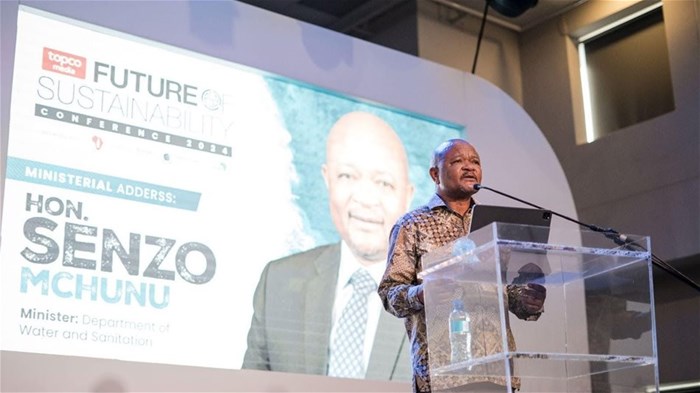Through keynote addresses, insightful case studies, and engaging panel discussions, participants at the Future of Sustainability Conference, hosted by Topco Media recently, explored innovative strategies, shared best practices, and emphasised the urgency of collective action to address pressing environmental and social challenges across the continent. As noted by Honourable Senzo Mchunu, the Minister in the Department of Water and Sanitation, "We are dedicated to investing in water infrastructure projects to address water scarcity and improve water quality, underscoring our commitment to sustainable water management."
We’ve aimed to capture insights shared by industry thought leaders at the Future of Sustainability Conference 2024.
Ministerial address on the National Water and Sanitation Master Plan
Honourable Senzo Mchunu, the minister of the Department of Water and Sanitation, provided valuable insights into the National Water and Sanitation Master Plan, highlighting its collaborative development process and key objectives. The plan aims to ensure resilient water supply, universal access to water and sanitation, effective infrastructure management, and reduced future water demand. Legislative reforms, such as the establishment of a national water resource infrastructure agency, demonstrate the government's commitment to ensuring future sustainability. Initiatives such as catchment management agencies and water user associations play a pivotal role in enhancing local water resource management and fostering community engagement. "Private sector partnerships are crucial for augmenting funding and expertise in water service provision, ensuring sustainable water management,” adds Honourable Mchunu.
Keynote address by Ntsako Baloyi, Coca-Cola Beverages South Africa
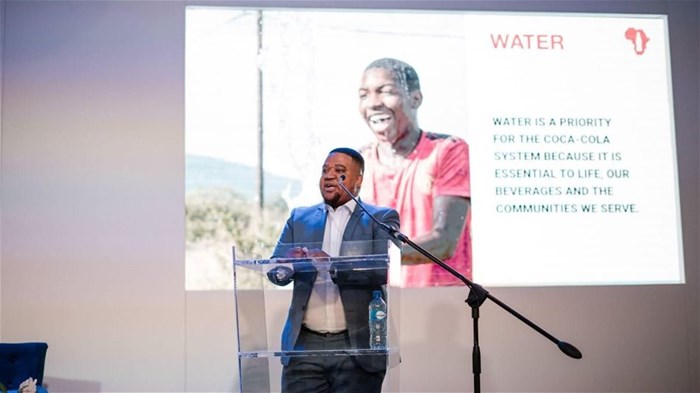
Ntsako Baloyi, head of sustainability at Coca-Cola Beverages South Africa, underscored Coca-Cola's steadfast commitment to sustainability and its profound impact on communities and the environment. Baloyi highlights the company's multifaceted initiatives, which include water stewardship, circular packaging, climate action, and economic inclusion. Through initiatives like Project Lungisa and Cokeville, Coca-Cola demonstrates its dedication to increasing water security and replenishing water resources in high-stress areas. The company's circular economy approach to packaging, with innovations like the EcoTwist bottle, showcases its commitment to reducing waste and promoting recycling. Baloyi adds, "At Coca-Cola Beverages South Africa, we are dedicated to refreshing the country and making it a better place for all. Through collaborative efforts and sustainable solutions, we are committed to reducing our environmental impact while creating shared value for all stakeholders.”
Case studies by Old Mutual Insure, SPAR Group Ltd and OMI Solutions
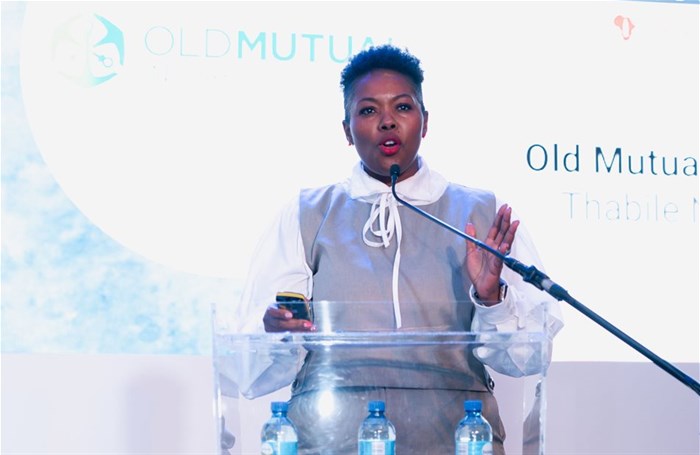
Thabile Nyaba, chief risk and sustainability officer at Old Mutual Insure
Thabile Nyaba, chief risk and sustainability officer at Old Mutual Insure, presented a compelling case study on leveraging sustainable finance to drive climate adaptation. Nyaba highlights the urgency of preparing for and mitigating the impacts of climate change, emphasising the interconnectedness of climate risks and the need for collaborative solutions. Through initiatives like resilient cities and amphibian houses, Old Mutual Insure demonstrates its commitment to addressing climate-related risks and promoting resilience in communities. "It all starts with us. What actions will you take to contribute to a sustainable cause and protect our world? Our individual choices today shape the future for generations to come,” Nyaba concludes.
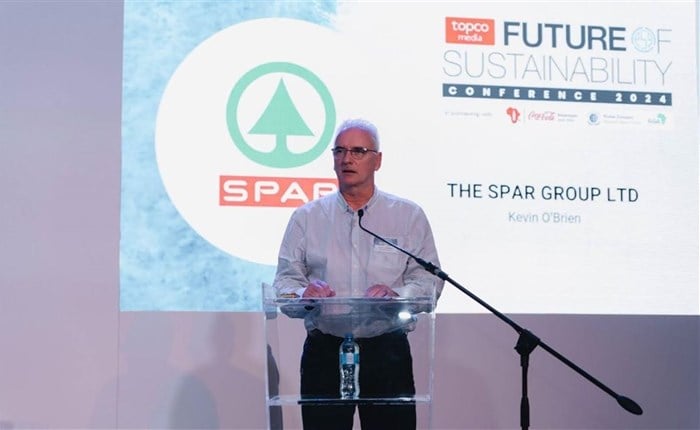
Kevin O’Brien, group sustainability executive at The Spar Group Ltd
Kevin O’Brien, group sustainability executive at The Spar Group Ltd, emphasised the imperative for collaboration among business, civil society, and government to ensure a sustainable future. Using Spar as a case study, O’Brien highlighted the need for strategic thinking and cultural shifts within organisations to embed sustainability into their core operations. He challenges the shareholder supremacy model and advocates for a purpose-driven approach that considers the interests of all stakeholders. "Inclusive collaboration, even with competitors, is imperative for addressing complex societal issues and driving meaningful change towards a sustainable future,” adds O’Brien citing examples of Spar’s initiatives like rural hub farming and partnerships to combat period poverty and gender-based violence.
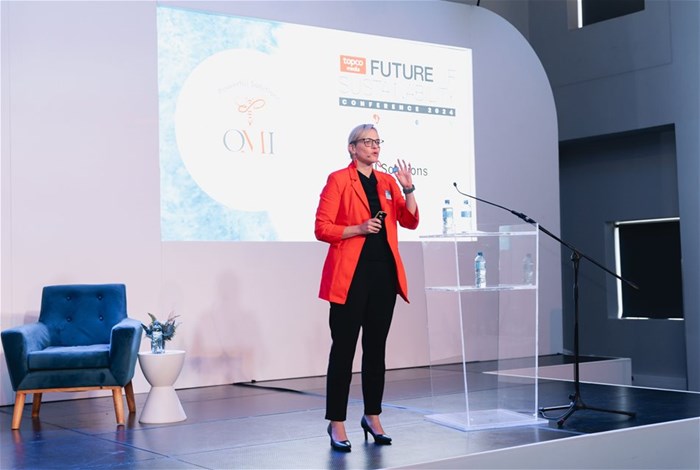
Robyn Sally Mellett, CEO and founder, of OMI Solutions
"SDG 3 should be at the forefront of our collective efforts. Without prioritising human well-being, we cannot achieve true sustainability,” states Robyn Sally Mellett, CEO and founder, of OMI Solutions. Mellett offered profound insights into mine restoration and community collaboration as catalysts for sustainable development. She emphasised the indispensable role of mine rehabilitation in mitigating environmental consequences while fostering socio-economic benefits for communities. OMI Solutions' ethos of powerful solutions with gentle delivery underscores the importance of considering community well-being alongside environmental stewardship.
Fireside chat exploring Nestlé's Income Accelerator Program and its impact on cocoa-farming families

Zumi Njongwe, business executive director: confectionery at Nestlé East and Southern Africa Region
Nestlé's Income Accelerator Program seeks to address historical inequalities in the cocoa farming sector, focusing on gender disparities, child labour risks, and low family incomes. Zumi Njongwe, the business executive director: Confectionery at Nestlé East and Southern Africa region unpacked the impact of the income accelerator program stating that, "By incentivising education and promoting sustainable farming practices, we are fostering shared value creation that benefits both cocoa communities and our business.” Responsible sourcing and social impact are fundamental to Nestlé's operations, driving its commitment to secure a stable cocoa supply chain amidst global challenges.
The collective commitment to driving positive change and fostering inclusive, stakeholder-driven approaches underscores Africa's potential to lead the way towards a more sustainable and prosperous future for all.
Here are more key takeaways

Kurt Roelandt, director, envision advisory services
- "A lot of companies start with the environmental aspect, but they should swiftly extend their focus to social and governance factors, which are equally crucial for sustainability."
- "The evolving regulatory landscape, particularly with standards like ISSB and ESRS, underscores the need for companies to integrate sustainability across their value chains, not just within their immediate operations."
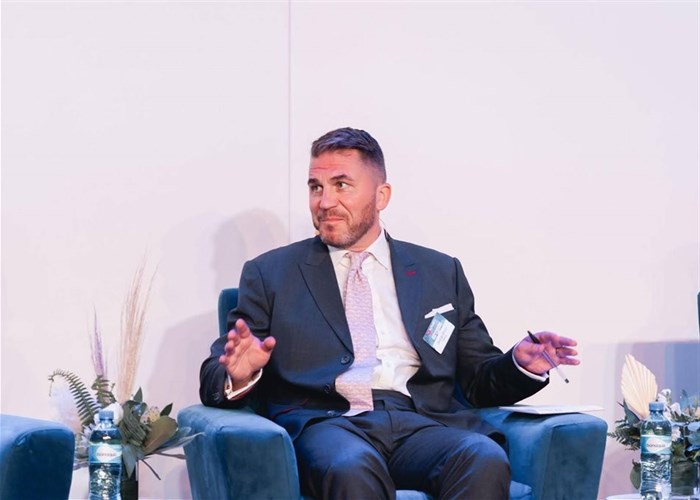
George Wilson, head of institutional trade finance, Investec
- "Sustainable trade finance in Africa is vital for the continent's development, yet it faces challenges due to divergent priorities between global investors and local needs, emphasising the urgency for a more contextualised approach."
- "African SMEs often find themselves caught between sustainable practices and economic necessity, highlighting the complexity of balancing environmental goals with socio-economic realities."
- "The future of sustainability integration hinges on empowering African voices to shape regulations and decisions, ensuring that policies align with the continent's unique socio-economic context."
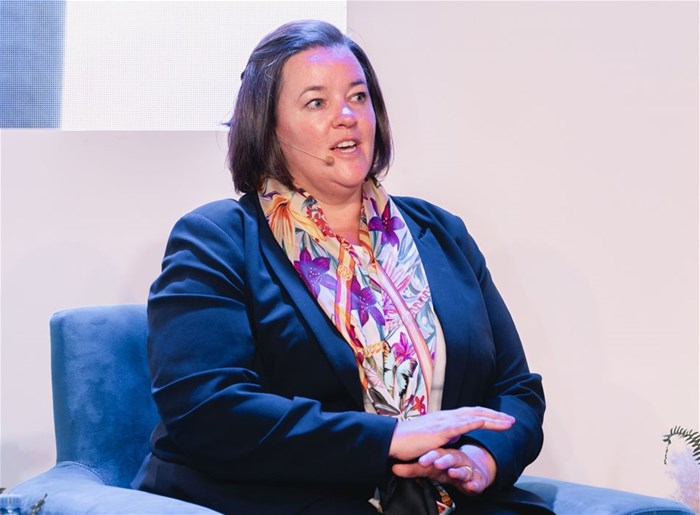
Lee Swan, head of sustainability, Alexforbes
- "The true potential for sustainability lies not just in large corporations but also in unlisted sectors, particularly micro and small enterprises, which play a critical role in driving economic growth and social development."
- "Prioritising sustainability efforts based on an organisation's specific goals and challenges is essential, as it allows for a focused approach that addresses the most pressing issues effectively."
- "Achieving sustainability isn't just about compliance; it's about understanding the impact of business decisions on people, the planet, and profits, and aligning strategies accordingly to drive positive change."

Blessing Manale, head: communications and outreach, South African Presidential Climate Commission
- "The Just Energy Transition must leave no one behind, acknowledging the impact and interests of indigenous peoples on renewable energy and sustainability."
- "We must realise that without a sustainable environment, money holds no value. It's essential to prioritise environmental sustainability in our energy strategies."
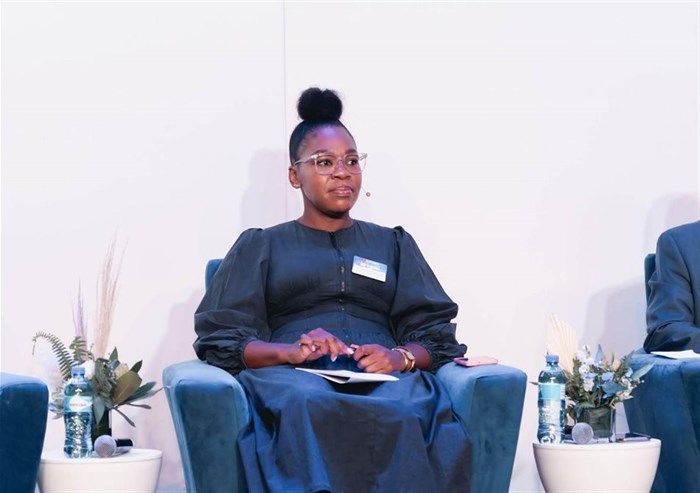
Simphiwe Ngwenya, programme manager - Mitigation, South African Presidential Climate Commission
- "Africa can lead in the Just Energy Transition, leveraging initiatives like JetIP financing to achieve energy security and a clean energy mix."
- "Economic diversification and local manufacturing are crucial for maximising the value chain in renewable energy and promoting sustainable development."

Des Muller, managing director, NuEnergy Developments
- "Money is an idea backed by confidence. A Just Energy Transition must prioritise energy security, affordability, sustainability, and job creation to gain confidence and secure funding."
- "Repurposing retired coal assets with technologies like small modular reactors and gas can facilitate a comprehensive and sustainable energy transition."

Dr Stanley Semelane, head stakeholder relations: ESG and Sustainability, Sasol
- "Africa must consider regional cooperation and local investment to fund its decarbonisation journey effectively and secure its place in the global energy transition."
- "Confidence in the Just Energy Transition is essential for securing funding and ensuring energy security, affordability, and environmental sustainability."
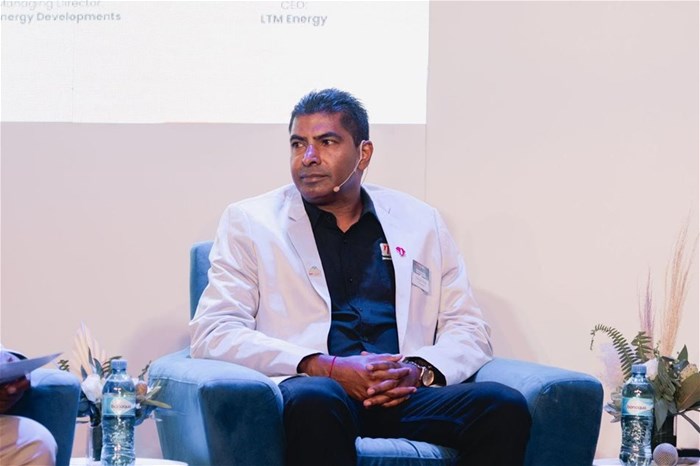
Dhevan Pillay, CEO of LTM Energy
- "Innovation is key to addressing both decarbonisation and energy security challenges. By embracing innovative technologies like conduit hydro and waste-to-energy, we can achieve a double whammy: reducing emissions while ensuring reliable energy supply."
- "As leaders in the energy sector, it's imperative that we lead by example and drive the change needed to protect our planet. Collaboration and exploration of new partnerships, not just within our borders but also with neighbouring countries, are essential for creating a sustainable future."

































